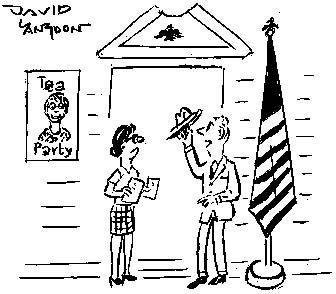The 2010 Gramophone Awards took me by surprise the other day — quite possibly because I took no interest in the 2009 Awards and therefore may have missed out on a trend.
The 2010 Gramophone Awards took me by surprise the other day — quite possibly because I took no interest in the 2009 Awards and therefore may have missed out on a trend. It was as if the recording equivalent of the Campaign for Real Ale had come along, swept away the Watney’s Red Barrel, Whitbread’s Trophy Bitter and Worthington ‘E’ of the classical music industry and replaced them with all those myriad micro-breweries with funny names and higher alcohol levels. Where once there was EMI, Deutsche Grammophon and RCA touting their short list of famous names in predictable repertoire, there is now so much variety that the punter needs a degree in Comparative Listening to keep abreast of it all.
I think this is a healthy scene, which in a way corroborates the average turnout recently announced for the latest season at the Proms: 92 per cent across the board. Classical music is clearly becoming more and more popular, and it isn’t just the Viennese classics that are making it so. There is now plenty of room for all manner of diversity, which is as true of repertoire as it is of specialist artists and record labels. With so many significant ensembles founding their own labels to promote their own corner of the market, one wonders where it will all end, except to say it does not mean big bucks for even the most renowned any more, at least not from record sales.
It appears that I do not have the necessary degree, since I found I had not only not heard of some of the winners, but had scarcely heard of the labels recording them. For example, the Baroque Instrumental Award went to Vivaldi — ‘The French Connection’ played by La Serenissima under Adrian Chandler on Avie (AV2178); the Baroque Vocal Award to a group called the Baltasar-Neumann Chorus under Thomas Hengelbrock, on Deutsche Harmonia Mundi (8869 752684-2). This is not, of course, the record company called Harmonia Mundi, which won two awards this year including this curiously named category: Chamber in association with the Eilat Chamber Music Festival. Linking awards with music festivals is a new one on me and suggests all sorts of interesting conjunctions. The Proms would be eye-catching.
Perhaps classical music just doesn’t throw up that many celebs these days, which is not to say the talent isn’t there. There were some exceptions. The Artist of the Year was named as the mezzo-soprano Joyce DiDonato, while Alfred Brendel was given the Lifetime Achievement Award. However, we were then invited to recognise Brian Couzens (Special Achievement Award) as the founder of the Chandos label, alongside Linn Records as Label of the Year. The Editor’s Choice Award was given to ‘Marin Alsop’s recording of Bernstein’s Mass on Naxos’, a title which confused me. A parody mass, then? And André Rieu received the Specialist Classical Chart Award which, it was said, reflected the dominance in the chart of his Forever Vienna album throughout much of the past year. Specialist Classical Chart Award?
The winner of the Early Music Award and of the Record of the Year was Infelix Ego, the 13th volume of a complete Byrd Edition, performed by The Cardinall’s Musick under Andrew Carwood on Hyperion (CDA67779). This was in every way an excellent choice, though once again if you are dyed in the wool you might have difficulty locating any of these proper names in your lexicon of what makes for tried and tested listening. But I was pleased to see that Hyperion, which was once a small record label in the shadow of the ‘majors’, has itself become one of the majors. I also hail Carwood and his singers for breaking a record (excuse the pun) that has stood for 23 years. The blurb states: ‘It is only the second time an Early Music recording has won the Recording of the Year.’ The first time was when the Tallis Scholars won it in 1987 with a record of music by Josquin.
Records are there to break — in fact, they need to be broken periodically or they slowly cease to have any relevance — but as I congratulated Carwood I felt as Gary Sobers must have felt that day in 1994 when he saw Brian Lara score 375 against England at St John’s in Antigua, and so beat his own record for the highest test score of 365. I know the world is more interested in Sobers than in Josquin (or in Lara than Byrd) because it is a fact of life that there are more popular heroes in sport than in music. I cling to the thought that the world is better for all those micro-breweries — and that the Gramophone Awards help to put their musical equivalents into a well-deserved limelight, however briefly.






Comments